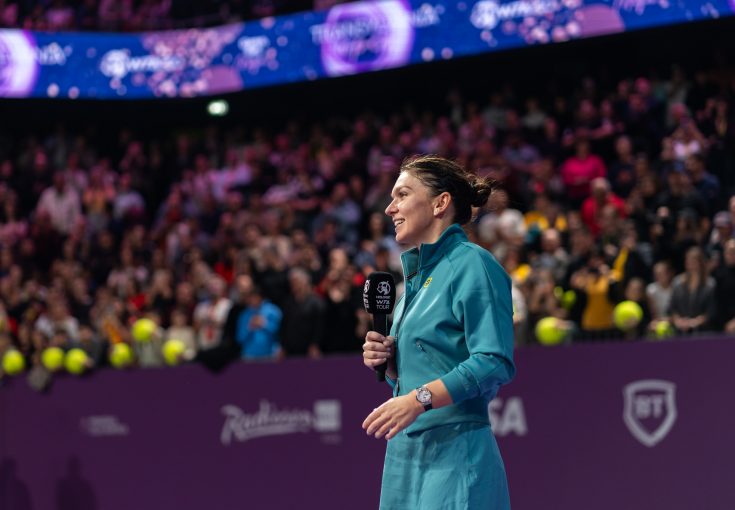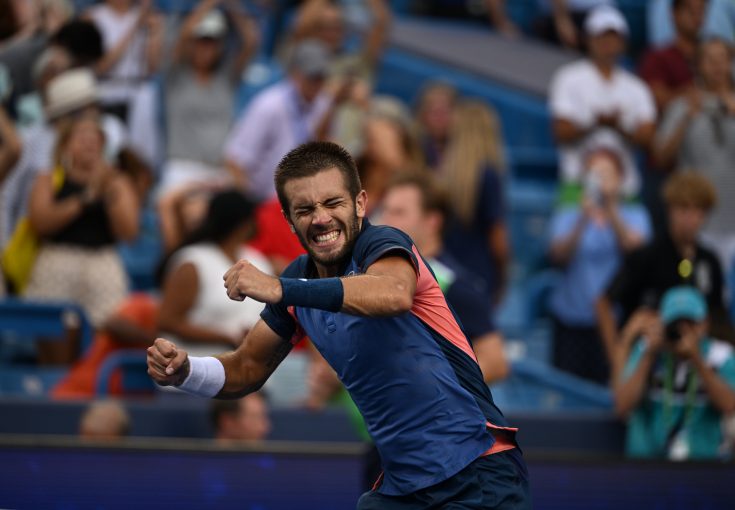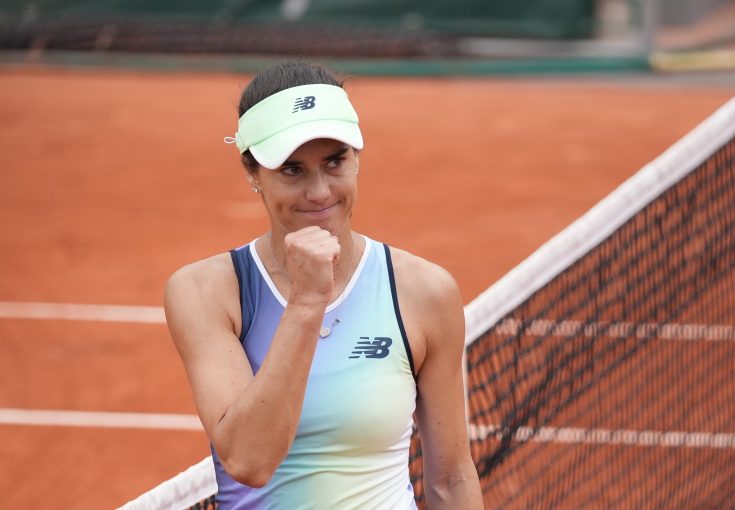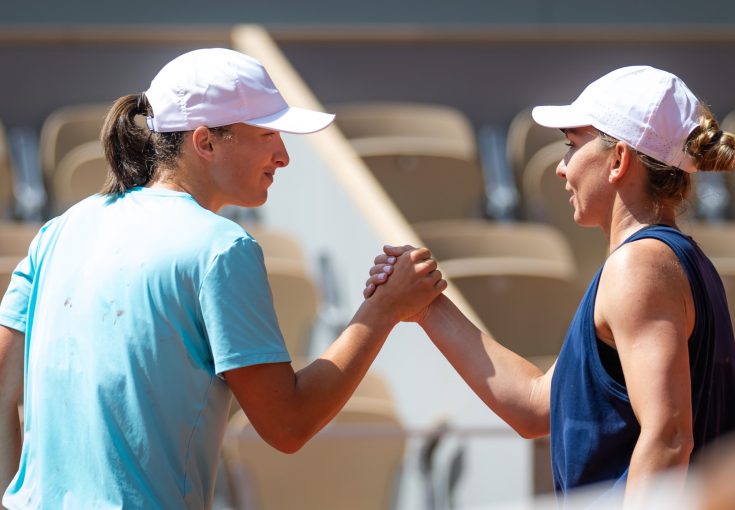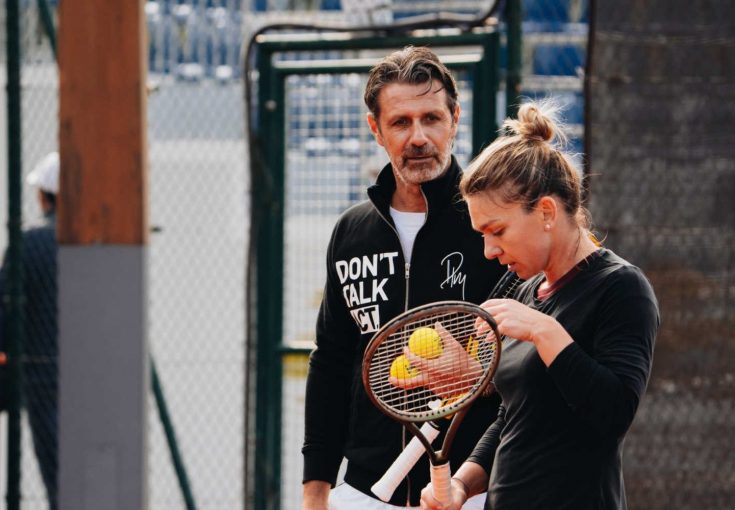Exclusive | Simona Halep on the End of Her Career: „Let My Passion for Tennis, My Fire on the Court, and My Resilience Be Remembered”
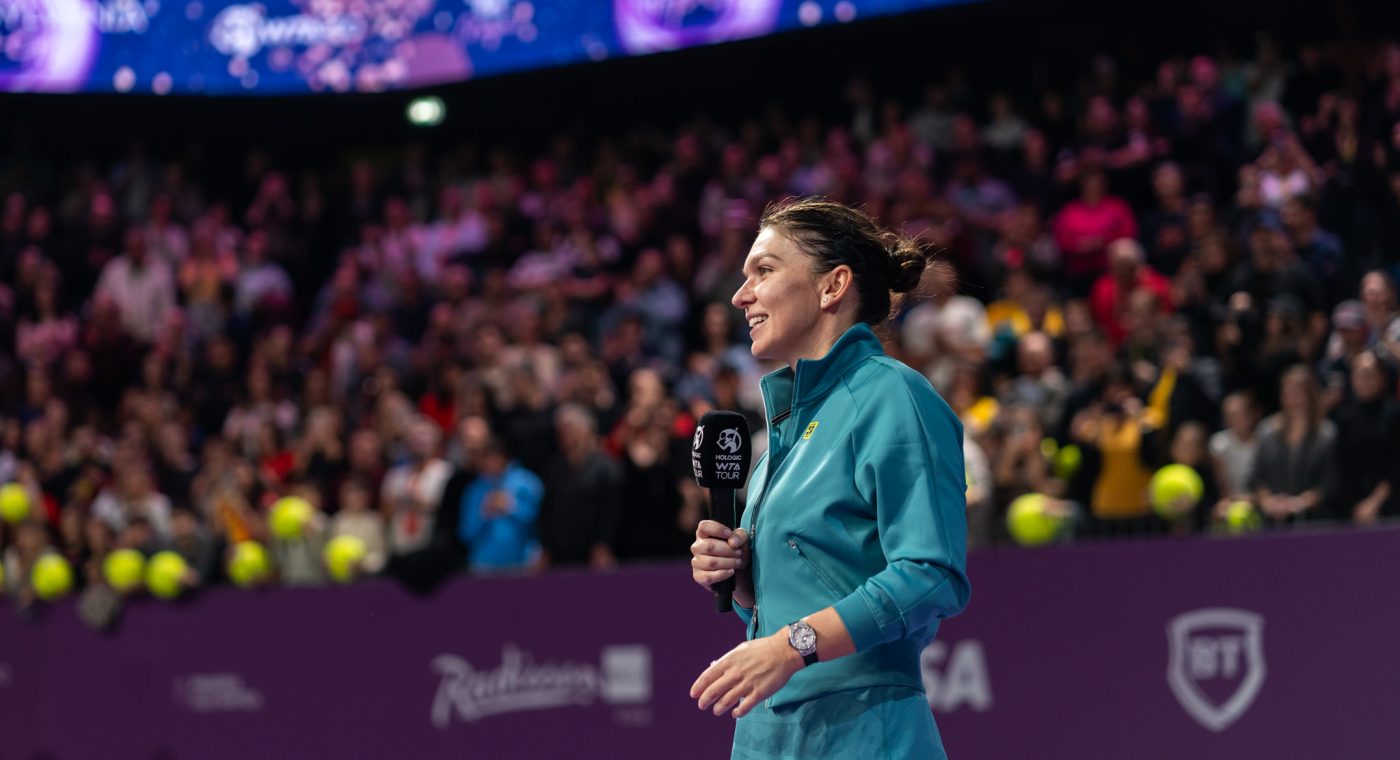
In her final interview as an active player and the only one given on the occasion of her retirement, Simona Halep opened up to 30-0 less than an hour after making the announcement, about how she came to the decision to end her career.
Nothing prepares you for this. You know it’s coming, but you don’t know what you’ll feel when it happens. And in that moment, it feels like a part of you has just been lost forever.
“From Romaniaaa, Siii-moo-naaa Haleeep!” This joyful, rhythmic chant has embraced us for the past 13 years. I can hear it now, loud and clear, and the battle is about to begin. Rome, Aga; Nuremberg; six-in-a-year; Top 10; Roland Garros, The Night Before That Final; Singapore-6-0; Indian Wells, Madrid, RG17; World No. 1; AO18; Roland Garros champion, Wimbledon champion, World No. 1; Rome, Canada. Cluj. All these words and images are rushing through my mind, along with “Fire in the belly,” with every down-the-line backhand, every refusal to give up, every match I’ve watched he live, every trophy, every article, every pain, every lesson. Every smile.
I’m about to do what I believe will be the hardest interview of my life. Just 30 minutes earlier, Simona stunned everyone by announcing on Center Court at the Transylvania Open that her time had come. Now, she’s at her last press conference after an official match, and then, in just a few minutes, she’ll come here, to the player’s lounge, for her final one-on-one interview as an active player. And then, it’s over.
Everything is happening so fast. Like those images in my mind. Like her career. Like a rally where Peak Simona steps inside the court, opens up her angles, and closes out the point. With her soul. With her heart. With her mind. And only then, with her arm.
And then Simona walks in. And what I thought would be the hardest interview of my life turns out to be the most beautiful. The most meaningful. Listening to her, it all becomes clear. Everything makes sense. The circle is complete. We’re finally home. She’s at peace, so you’re at peace. You’re happy for her. But you still don’t want it to end. Neither the interview nor her story. You already miss her so much. You wish you could go back, just for a minute, to those scorching days in Paris, London, or Melbourne when Simona made us all so happy. Giving everything. Sacrificing everything. Being everything.
Simona is life. Simona—now, just as she was then—will be just fine!
***
How are you feeling right now?
Very well! Yes! I don’t know why everyone is so worried, but maybe it’ll be tough for me in a few days. Right now, though, it feels like a release. It was really difficult. I’m not the kind of person who steps on court just to be there. I couldn’t even train properly. I played at most an hour a day, on clay, before coming here. I work out, but it takes so much more than that to keep up, to play a full match. My knee hurts, my shoulder hurts. And I’ve reached that kind of emotional exhaustion, you know? I just don’t see the point anymore. And I don’t see any real reason to keep pushing myself. Right now, it’s a physical struggle to get to where I’d like to be, because I can’t play tennis just to be ranked 100 in the world.
When did you know?
When I realized my knee injury was serious and that I needed a cartilage implant. They told me the recovery would take a year, a year and a half, and that there was no guarantee I’d be able to perform like before. My goal throughout my career was to avoid surgery. To play for as long as possible, but never to need surgery, because once you have it, nothing is ever the same. And I managed to avoid it, so there was no reason to keep pushing, to break something just to… what, in the end? Maybe in a year, I’ll miss it and I’ll come back—because you see so many athletes making comebacks now. But it’s good for me to say it out loud, to let go and see life in a different way.
In a way, everything that’s happened in the last two years has slowly led you to this moment.
Yes. Even back in February 2022, before I went to the Academy, I wanted to quit; I told my parents back then, and maybe I should have listened to them. People around me convinced me to go and try, to keep going.
My tennis was always very physical. And emotional. I’m a very emotional person. Every single match meant so much to me. Before matches, I’d have stomach pain, anxiety—it’s exhausting to go through that. And I’m very realistic. I can’t just say now that, because I was world number one, I can reach the Top 10 again. You have to work like a dog to get there. And right now, I can’t do that anymore.
Is this your way of showing how much you respect tennis—choosing to step away if you can’t give it your all?
Yes, that’s a great way to put it. I know you have to respect tennis 100%, by giving it everything. I dedicated my life to it, and now I can’t do that anymore. And I don’t want to. I’ve discovered so much about myself during this time—and I know everyone talks about personal growth, but it’s real. And it has meant a lot to me to see life differently, to gain a new perspective, to realize what truly matters. There are so many problems in the world, so many illnesses, so many loved ones who have struggled. If I were 25 and just starting out, sure, I could rebuild from scratch. But after everything I’ve done… I sat down with myself and said, ‘It’s not worth going through all this anymore. It’s time to look in a different direction.’ And we’ll see what happens. I don’t even know what comes next. But right now, I know I won’t play anymore.
You thanked your parents in the most beautiful way.
They are special, and they’ve always been there for me, supporting me through everything. People might not believe this, but they never scolded me. Not when I made mistakes, not when I lost… never. Saying all these things, I feel like it’s a way of thanking them. They’ve been by my side completely. My dad, especially, with his crazy passion… Even now, on the court, he was shouting at me, “Come on, hit the ball!” I told him, “I can’t anymore, Dad!” and he just started laughing (Simona laughs too). My mom is quiet, sensitive, emotional, peaceful, but she’s always been there with her heart. She was crying today. They both touched me deeply. But they also supported this decision, because they saw how much I was struggling physically to keep playing tournaments, and they agreed that it wasn’t worth going through this anymore.
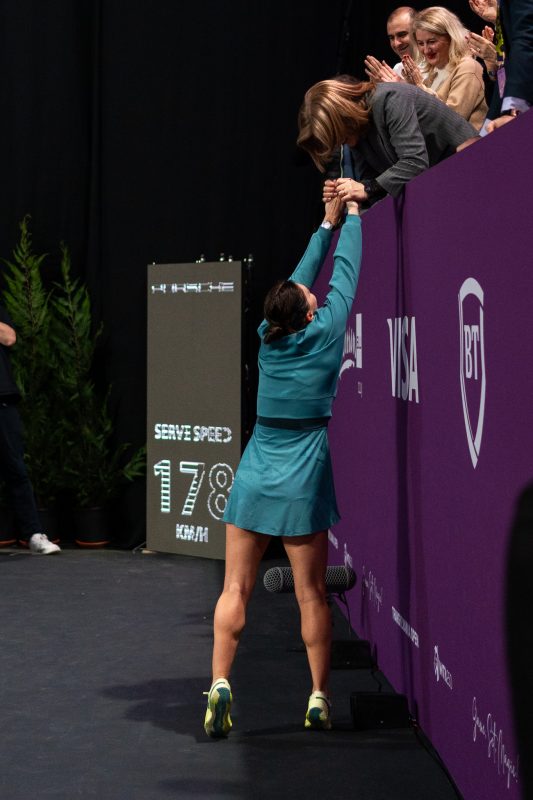
What would you like to take away from your career?
Absolutely everything. The bad moments, the not-so-great decisions I made, and the good ones too—everything. Right now, in this moment, after everything I’ve been through—disappointments, painful defeats, everything that has happened in the last two years—I don’t feel anything negative toward this sport. For me, it was a passion, it was my life’s purpose. It was my calling. I don’t want to use grand words, but this is what I did. This is all I did. And now, I realize that I actually haven’t lived life. For 30 years, I only lived for tennis. And I don’t regret it—if I were to be born again, I would do the same—but I like that I have the strength to say stop. You know? And to accept that the time has come, with everything that has happened, to say, „That’s it.”
I have no regrets. I am left only with the beautiful things, with a deep sense of fulfillment that I never even imagined. I am left with two Grand Slams, with Wimbledon—which was just wow—with being world No. 1, with so many tournaments won. As Darren says, “You’re the best in the history of Romanian tennis, so be proud of yourself!” He even texted me now, saying, “You did it your way.” He told me to have a big ceremony, and all that (Simona laughs). I told him, „No, Darren, I’ll do it exactly how I feel.” What’s the point of all the fuss and the craziness? Tennis will always remain in my heart. Maybe I will remain in the hearts of my fans and supporters… But that’s it! We have to move forward.
If you had to choose one moment—the biggest, the most special—where would you stop?
Roland-Garros 2018. Everything about it. The anthem on the court. It felt like I was in Romania! And everything that had happened before, the final from the year before that haunted me for about three months. Wimbledon was something else, but Roland-Garros 2018, for sure.
Do you feel nervous about what comes next? About discovering yourself beyond being Simona, the tennis player?
Of course, I do—how could I not? I’m an emotional person. I even get nervous when I go to a party. I’ve talked to other players, and it seems like everyone faces this fear of what comes next. I’m not afraid, though—I feel like I’ll manage. I have a wonderful family, I’ve made some investments in Romania, I’m an open person, but I don’t feel the need to have something to do right now. I don’t want responsibility anymore. I don’t want plans. I don’t want a strict schedule.
I just want to go play golf—that’s my goal, to learn how to play. I want to go to the gym every day, to take care of my body. I know everyone gains weight when they retire from sports (laughs). I have some personal goals. But I wouldn’t want to have big plans for a while.
I want to be a mother. A good mother, like my mother. I want to have kids when the time is right. But I also want to be normal. Because for these 30 years that I’ve been playing, I was a high-performance athlete—I wasn’t a normal person. And now, it’s time to discover other things in life.
Speaking of children, if you had to convince them why they should choose sports, what would you say?
Because it helps them feel fulfilled. Because you can achieve something in life. I think it’s important to do something. Kids need to understand that to reach the top, you have to give it your all. They need to be willing to give everything. And when you do that, you feel a sense of satisfaction at the end of the day when you go to sleep; you think, today, I did everything I could. And that was my best. You also have to be at peace with yourself and satisfied with yourself. I have criticized myself so much throughout my career, both on and off the court. Working with psychologists, going through therapy, I’ve learned to accept myself as I am, and that has helped me a lot. I used to ask my dad—why do I get so nervous? Because maybe, because of those nerves, I don’t do everything I could in that moment. And he said that if you feel nervous, it means you’re alive. Don’t fight it, let it happen. And I understood that I needed to embrace it and enjoy it. And it helped me.
And emotions make you who you are, in the end.
Yes, they define you. I’ve accepted myself, and I’m at peace with who I am. And even though I’ve been through tough times, I’m really proud of how I’ve handled things. The fact that today I am mentally, emotionally, and spiritually healthy is a huge victory for me.
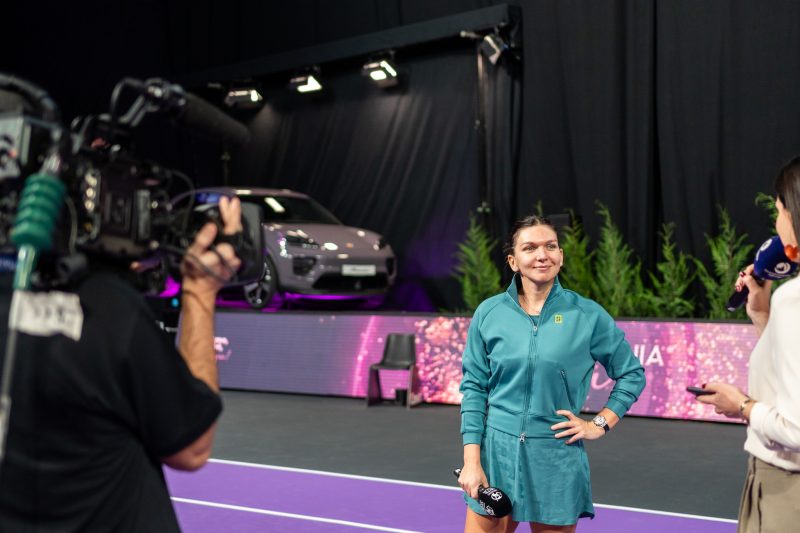
Out of all your qualities, which do you think was the defining one? What kept pushing you forward when things seemed impossible?
Faith. And faith in good. Before my suspension, I didn’t believe in malice, and I realized that there’s a lot of it in the world. Many people asked me if I felt the need to speak out, to shout, to take revenge. No, I didn’t. I never felt that way, even toward those who acted with bad intentions. That’s their negativity. And I don’t need to go to that place where I harm myself by thinking bad things about them. If that’s how they thought and acted, that’s on them. I am at peace because I know I didn’t do anything wrong, and I want to stay clean and at peace, keeping goodness inside me. Because when you feel good inside, you live a beautiful life. You don’t have negative thoughts, you can sleep well, you wake up and smile… If, after everything I’ve been through, I still have the strength to smile, it means I’m in a good place.
Did you ever imagine how it would end? Did you think about how this day would be like?
No. I never thought about how it would be. Just like with everything I’ve done. Even now, before the tournament, Patrick (Patrick Ciorcilă, Transylvania Open director) asked me if I wanted to have a big ceremony. I told him I wasn’t going to announce anything, I would just see how I felt. And today, on the court, I felt that I had to announce it, that there was no point in continuing. And that’s how I felt—to do something as simple as possible because that’s what makes me feel comfortable. And I think it was the right decision.
What will you miss the most about tennis?
The adrenaline of victory. When you win a Grand Slam, you feel every part of your body vibrating, that euphoria takes your brain to a place you can’t reach otherwise. Only sports can make you feel that way. But I’ve talked a lot about this with Darren, and he told me he doesn’t think I’ll miss it that much. If you ask former top athletes, I think they would say I reached my maximum. Considering my body, my emotional nature, I’ve experienced intense things and achieved a lot. So, I don’t know if I’ll miss it that much. I think I’m at peace, and I understand that it’s time to move forward.
How was the battle between your mind, soul, and body in making the decision to retire?
It was harmonious. Everything aligned in the same direction. Nothing held me back, and I didn’t feel like I would regret it or be afraid to do this. My mind, body, and soul were all in sync. I don’t want it to sound easy, but today, this is the best decision for me. Darren told me many times: “There will come a day when you’ll just feel it, and nothing else will matter.” And here it is.
Maybe I’ll come back in a year or two, who knows? Look, the women on the tour become mothers and then return. Maybe I will too, but I don’t think so.
What would you say to your fans right now?
No, what would I say to my critics? (laughs) Tennis was never about proving anything to those who didn’t believe in me. Tennis was my passion. It was my desire to be the best. It was my desire to achieve great things in tennis, to do everything as well as possible. And for that, I dedicated my life. My life was on the line here. And I succeeded.
I want to say this because it applies to all athletes. Those who criticize athletes don’t understand what we go through during matches, what we go through daily when we push ourselves to the limit, when our entire body hurts, when we suffer a muscle tear, when panic sets in. There are so many moments of anxiety, and yet people throw words at us so easily. I haven’t read the press since 2014 when so many negative things were said about me—even though I had just played a Grand Slam final and lost to one of the best, Sharapova. Back then, I didn’t know how to handle it—it hurt me, it insulted me. They don’t understand what sports mean, what an athlete carries in their heart, what it means to dedicate your entire life to a sport while they sit and criticize.
I want to tell them not to make the same mistake with young athletes, with those who dream and work hard to fulfill that dream. To be more understanding and supportive. For me, their words fueled my ambition, and at some point, they no longer affected me. Maybe the next generation will have people who don’t criticize so much and support athletes more. Because all of us, even if we succeed, even if we have fame and money, are still human. And we need support no matter what. We have negative emotions, we have moments when we struggle to handle them. We are all human, and we should be kinder and more supportive of one another. And I think this is more important to say than just expressing gratitude. People already understand and know that I deeply appreciate their love and support over the past ten years.
Do you think that years from now, these things will be appreciated differently? That people will understand once you are no longer active?
I don’t know how important my tennis career is to the world, because we all have our own problems, our own daily concerns. I just hope… I hope people will realize that in the moments when they should have supported me, they didn’t—and instead, they were too harsh. But life goes on, with or without me in the sport. No one is going to cry over me being gone. Maybe they’ll just remember the results I had and the emotions they felt when I won big tournaments.
I never had a problem with the media. I just tried to avoid them because they were hurting me. The negativity in many articles affected me. So, I decided to protect myself from that negativity, which is why I kept my distance. But I never held anything personal against anyone. I would have loved more support; I would have loved for them not to throw words so carelessly, not to amplify the negativity of some people so easily. But I make peace with them now that it’s over. I hold no hard feelings toward the Romanian press. Would I have liked more support? Yes. But I appreciate the support I did receive, and I hope they do better with the next generation of players.
Simona…
I wanted to add something. Sorana came to me and said, right when I finished—maybe we weren’t the best of friends, but congratulations for everything you’ve done! I just wanted to say that I have absolutely nothing against any Romanian tennis player. I’ve always been happy for all of them. I continue to wish them great success. Yes, there have been discussions, maybe some comments that weren’t appropriate at certain times, but tennis is a highly competitive sport, and no one should be judged for what they’ve said. Maybe I’ve also said things that weren’t right.
I had my own path, I built it on my own. I lost matches on my own terms, and I won matches on my own terms. Everyone works just as hard as I did—maybe even harder. Everyone has their own destiny and luck in life. But I want it to be clear in the media that no one has any conflicts with anyone. We were competitors. It’s hard to be friends with your direct rival in competition, but we are not enemies. Far from it.
It almost feels like a confession! (laughs)
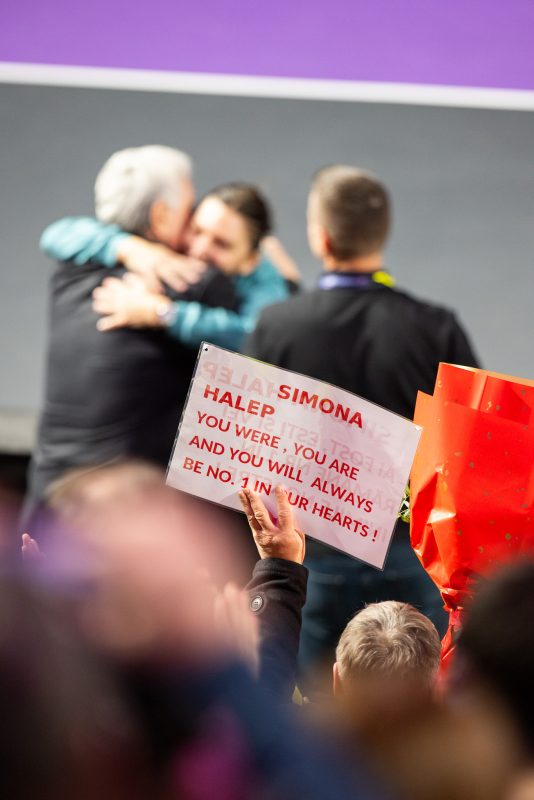
What would you like people to remember about your tennis journey?
I want them to remember my passion for tennis, my madness on the court, the fact that I never gave up when things got tough. That I dedicated my entire life to this sport. There are many emotional voids because of it, but I have no regrets. And I’d like people to see that I had this passion for the sport and that I dedicated my life to tennis. That’s what I’d want. And to understand that I never wronged tennis. That I never cheated and never did anything that would disrespect the sport.
I had many crossroads, big finals lost—others call them failures, but to me, they weren’t. They were moments that pushed me to prove to myself that I could do it, even if I didn’t succeed right away. As I said in 2017, maybe I wasn’t ready back then to win a Grand Slam. It happened after losing another final, but at the 2018 Australian Open, I knew the next one would be mine. Things happened for me when I was ready for them to happen. As my brother always says – nothing comes easy for you. Maybe that’s just who I am, or maybe I somehow attract this because we bring into our lives what we think and how we think. And maybe that’s just the way I am.
Who were the special people in your career, besides your family?
All my coaches played a very important role. They were all there, no matter what. Whether things were going great or not, each of them had their own significance in my career. But to make that step towards a Grand Slam, Darren helped me a lot. Being such a great coach, believing in me, being so warm and understanding me as I am, even though he wanted to change me a bit—to make me more positive. I think he had the biggest impact in winning a Grand Slam. He used to say, “You were already number 2 when I started with you.” Yes, but the road from number 2 to number 1 is long, and from number 1 to a Grand Slam is even longer.
From Romania, Mr. Dobre was always there for me. Whether I wanted to continue or not, he was there with unconditional support. And I’m sorry he couldn’t be here; I invited him, but he couldn’t make it for health reasons. But he is always in my heart. He is a special person, very emotional, who lives everything with maximum intensity.
Would you want your child play tennis?
Yesss, of course! But I don’t know if I’d push them toward professional tennis. Only if they really wanted it, but I’d support them no matter what. I’ve always said that kids should be allowed to do what they love—of course, with some guidance. Professional sports seem extremely tough to me, but I would support them 100%.
If they chose professional tennis, would it be harder for you watching from the stands than playing yourself?
I don’t think I’d go to their matches. I don’t want to be one of those parents clinging to the fences! (laughs)
Simona, you’ve had an amazing career, and we’re all so happy for you and proud of you!
They were beautiful years! Tennis has changed, the world has changed. I was lucky that at every tournament I played, everyone showed me friendship and warmth, and the organizers liked me everywhere I went. It’s hard to have years like that again (laughs). And now I have to be able to build a beautiful life outside of sports because I have a long life ahead. I’m only 33, yet I talk like I’m 80. But that’s how I lived it—intensely, with so much exhaustion, so much emotional effort. Now I just hope I can build a beautiful family. That’s all I want. I think that’s the most important thing.
And we were so sorry for what happened to you.
Everything happens for a reason. I don’t know what that reason is yet, maybe I’ll find out one day, but there is one.
Maybe it happened to test you. To make you stronger.
Maybe it was meant to test my faith. I don’t hide the fact that I have faith. I believe in good, I believe in beauty, and I want to stay that way. And my biggest victory was that I didn’t change after everything that happened to me in recent years. I’m proud of myself. That mattered enormously to me.
Do you think people have loved you so much because you showed yourself to be vulnerable, because they always felt you were open and honest?
It’s possible, but we are all vulnerable—even athletes who don’t show it; they just have the ability to hide these things. Of course, there are many who control themselves so well, like Federer, Mr. Perfect. But I never wanted to hide who I am. Why would I play a role? It’s much harder to play a role than to show what you feel. This is how I felt I should be. You tell me if it was the right thing.
This is the most important thing for me—that I feel fulfilled and have no regrets, neither personally nor in sports. There were things I decided at the time, and life goes on. I hope to learn from my mistakes. I know I will make more, but just like in tennis, that’s how I am in everyday life—I do what I feel and make the decisions I believe in. So, I will definitely make more mistakes.
For me, these have been wonderful years—more than I could have ever imagined. I don’t want to show off, but you can probably feel it now: I truly am fulfilled. Everything was so beautiful. I don’t feel anything negative about what I’ve lived. I hope people are left with joy, good memories, and a sense of happiness about my career. I have no words to thank everyone for all the love I’ve received!
Photos: Transylvania Open

